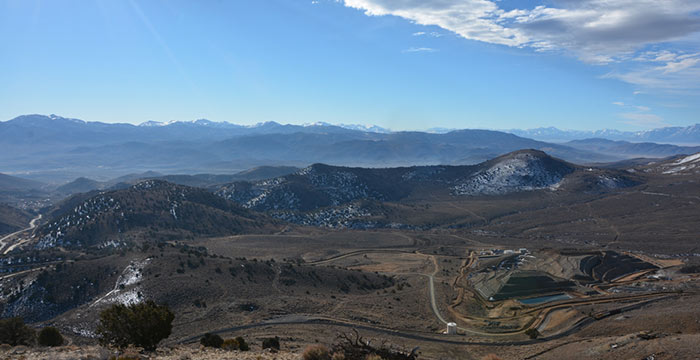The group engaged in a long fight against a mining company on the Comstock has appealed to the Nevada Supreme Court to read e-mails sent among county commissioners leading up to a controversial zoning decision.
In a brief filed this month, the Comstock Residents Association says a judge was wrong to deny them access to the e-mails under Nevada public records laws.
The key argument in the case is whether county officials can keep the e-mails private because they were sent and read on their own personal cell phones or computers, even though they were discussing public business.
“Public officials and employees may choose to use personal electronic devices and personal accounts when conducting the public’s
business,” the brief by attorney Luke Busby concludes. “That choice, however, does not control the application of (Nevada’s public records laws) and the cleansing sunshine of public scrutiny under this court’s prior precedents.”
The dispute dates back to 2013, when Comstock Mining Inc. wanted to change the zoning in Silver City to allow mining on its property. Although its staff and planning commission recommended against the change, Lyon County commissioners decided to remove the restrictions against mining in the tiny community.
Leading up to the decision, according to the lawsuit, one of the commissioners said she had been discussing the issue with other commissioners by e-mail and cell phone. The anti-mining residents asked Lyon County for records related to the zoning change and received many — but none that were contained on the officials’ personal devices.
In June, a district judge ruled the e-mails “are not public” because they were contained in personal accounts, not funded by taxpayers.
The Comstock residents, however, argue the deciding factor should be what the e-mails are about — public business — instead of where the e-mails are located.
“An otherwise public record does not lose public status simply because it was created, received or stored on a personal device or personal account,” according to Busby’s brief.
The suit also takes on a couple of issues important to open-records laws.
One is whether the the e-mails being sought were somehow confidential.
Nevada’s law says all public records are open to inspection unless another statute makes them confidential, and it requires the government to cite the specific statute making them confidential. Things like Social Security numbers, bank account numbers, medical records are confidential under the statute.
But according to the lawsuit, Lyon County made no claim that anything in the emails being sought were confidential.
Another common question in such cases is whether the public’s interest in viewing public records is somehow outweighed by other concerns.
“Lyon County fails to provide evidence as to why withholding these particular records would outweigh the overwhelming policy of public disclosure, particularly where it has already disclosed emails among commissioners with staff and constituents, that happened to have been in the possession of the central county administration,” says the Comstock Residents Association brief.
I’ll be interested to read a response from Lyon County, which hasn’t filed anything yet but laid out its case at the district court.
To me, it seems impossible to uphold the ruling that these records aren’t a matter of public record. Otherwise, it’s much too easy for officials to decide everything among themselves through e-mails on their personal accounts before having any discussions in public. I’m sure there’s a lot of this going on anyway, but at least there should be the assurance that the exchanges wouldn’t be kept secret.
A sticking point, when similar instances have come up in discussion, is how much should be revealed of what an elected official has discussed in private with a constituent. In this case, I’m going to assume the commissioners — one or all — were lobbied by Comstock Mining, perhaps by e-mail. Whether that conversation becomes part of the record might be arguable.
But certainly anything the commissioners passed among each other is subject to the open-records law.
The whole idea here is that the discussion, even if it’s by e-mail, has to be treated as if it is taking place at a public meeting. Taxpayers have a right to hear the back-and-forth between their representatives, and know what’s being offered or promised or threatened.
Clearly the Comstock Residents Association suspects there were shenanigans, after the county planners had found against the mining company — only to have the county commissioners reverse course. But the only way to prove everything was handled honestly is to reveal the full course of the negotiations. Anything less, and the residents always will believe a shady deal was made.
 Nevada Press Association The best in Nevada journalism since 1924
Nevada Press Association The best in Nevada journalism since 1924
